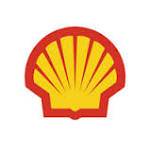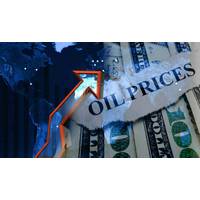Shell Shelves Saudi Gas Development Project
Royal Dutch Shell is ending investments in a gas development project in Saudi Arabia, complicating the top oil exporter's efforts to exploit its huge gas reserves.
The search for gas has been a priority for Saudi Arabia as it struggles to keep pace with rapidly rising domestic demand.
But the emergence of the shale gas industry has opened up more lucrative opportunities for energy companies elsewhere.
"Shell has decided to end further investment in the Kidan development," it said in an emailed statement.
"This was a difficult decision but Shell remains committed to the Kingdom and we are keen to grow our investments, both in upstream and downstream."
Shell did not give a reason for the decision to shelve the joint venture in the Kidan area of the Empty Quarter, the sea of sand dunes that cover south-east Saudi Arabia.
Last year, industry sources said the company was set to end investments in the venture due to disagreements with the government over terms.
At least three foreign firms - Italy's ENI, Spain's Repsol and France's Total - have already abandoned the search for commercially viable gas deposits in that part of Saudi Arabia.
Shell has stuck it out longer in its South Rub al-Khali Co (SRAK) project with state-run Saudi Aramco after finding small quantities of gas.
Kidan is rich in sour gas and is near the 750,000 barrels per day (bpd) Shaybah oilfield, one of the biggest in the country. Sour gas has high levels of potentially deadly hydrogen sulphide and therefore is tougher to produce than conventional gas reserves.
The relatively high cost of developing challenging deposits in a country where gas sales prices are fixed at a fraction of probable production costs were possible reasons to discourage Shell too, industry sources familiar with the matter told Reuters last year.
Saudi Arabia, which holds the world's fifth largest proven reserves of gas, expects domestic demand for natural gas - which it uses mainly for power generation - to almost double by 2030 from 2011 levels of 3.5 trillion cubic feet per year.
Saudi Oil Minister Ali al-Naimi had estimated the country's unconventional gas reserves - those held in reservoirs that have not been traditionally exploited - as at over 600 trillion cubic feet, more than double its proven conventional reserves.
Saudi wants natural gas to help it cover demand for subsidised domestic power so it can save its oil for more lucrative exports.
(Reporting by Rania El Gamal; editing by Sami Aboudi and John Stonestreet)




